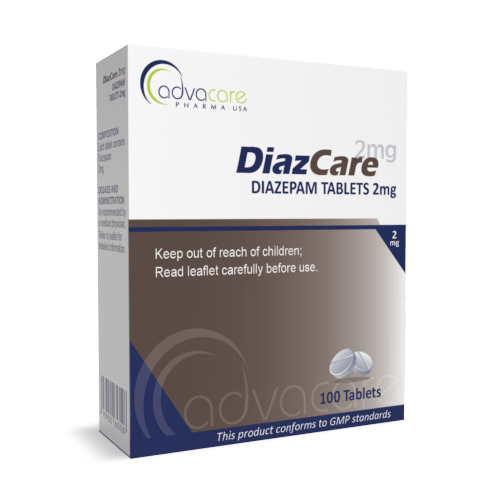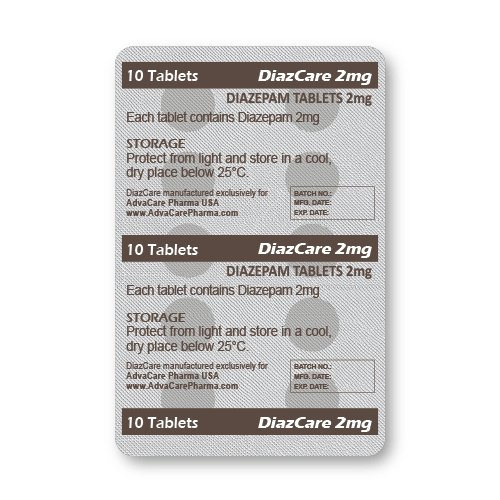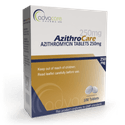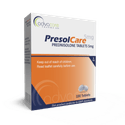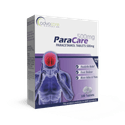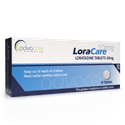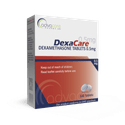- Home›
- Pharmaceuticals›
- Pharmaceutical Tablets›
- Diazepam Tablets
Diazepam Tablets
Dosage
Packaging
What is Diazepam?
Active Ingredients: Diazepam
Diazepam Tablets are a drug used to treat anxiety disorders and acute alcohol withdrawal symptoms. It is sometimes used as an adjunct to treat seizures, serotonin syndrome, or muscle spasms and stiffness. Diazepam may be prescribed as a short-term treatment for insomnia and other sleep problems.
Diazepam is a benzodiazepine that exerts anxiolytic, sedative, muscle-relaxant, anticonvulsant, and amnestic effects. It binds to the benzodiazepine receptors and enhances the neural inhibitory effects of gamma aminobutyric acid (GABA). The increased effects of GABA dampen neural excitation and produce a calming effect that supports the use of diazepam in treating anxiety and its related symptoms.
This medicine is also available in injection form.
AdvaCare Pharma is a trusted global exporter of Diazepam Tablets. This medicine is produced in our GMP-certified facilities in China, India, and the USA. These facilities are routinely audited to ensure they comply with international health, safety, and environmental standards.
Why are we a trusted Diazepam manufacturer?
As a reputable Diazepam manufacturer, we are dedicated to ensuring that GMP guidelines and standards strictly apply to the manufacture of our entire range of 200+ pharmaceutical treatments in tablet dosage form.
AdvaCare Pharma is an American pharmaceutical company committed to the manufacture of high-quality, affordable pharmaceuticals for a global market. The extensive international network that we partner with includes pharmaceutical distributors, hospitals, pharmacies, and a variety of other medical institutions. Our vision is to manufacture Diazepam Tablets, and other quality-assured oral solid treatments, that get into the hands of those that need them most.
Uses
What is Diazepam used for?
It is used to treat anxiety disorders, seizures, muscle stiffness, or acute alcohol withdrawal. Additionally, it may be used as an adjunct treatment for serotonin syndrome.
How are Diazepam Tablets used?
This medication is intended to be taken orally.
What dose should be taken and for how long?
Adults Dosage may vary based on different medical indications:
- For the management of anxiety disorders and relief of symptoms of anxiety, the recommended dose is 2-10mg, two to four times a day.
- For the relief of symptoms associated with acute alcohol withdrawal, the recommended dose is 10mg, three to four times in the first 24 hours, followed by 5mg, three or four times a day.
- For the adjunctive relief of skeletal muscle spasms, the recommended dose is 2-10mg, three or four times a day.
- For the adjunctive management of convulsive disorders, the recommended dose is 2-10mg, two to four times a day.
Children (≥ 6 months) The recommended initial dose for pediatric patients is 1-2.5mg given three or four times a day. Treatment should be initiated with the lowest dose and increased gradually, as needed and tolerated.
The effectiveness of diazepam treatment longer than 4 months has not been assessed clinically. Refer to a doctor or pharmacist for guidelines on dosage and treatment length. Do not exceed what they advise.
Who can use Diazepam?
Diazepam can be administered to adults and children (≥ 6 months), but caution is advised for specific groups of patients.
Pregnant Diazepam is a category D pregnancy risk. Diazepam has demonstrated teratogenic effects in animal studies, with cleft palate and encephalopathy being the most common malformations.
Benzodiazepine use during pregnancy may increase the risk of congenital malformations and other developmental abnormalities. Some children exposed to benzodiazepines in late pregnancy have experienced adverse events of neonatal flaccidity, respiratory and feeding difficulties, hypothermia, and withdrawal symptoms.
The use of diazepam during pregnancy is not advised. It should only be used if the clinical benefits will outweigh the potential risks to a fetus and there are no safer, alternative treatment options.
Nursing Diazepam is excreted in human milk. Because of the potential for serious adverse reactions in nursing infants, either nursing or diazepam should be discontinued, based on the importance of the drug to the patient.
Pediatric Diazepam is contraindicated in pediatric patients < 6 months old due to a lack of clinical data on its safety and efficacy in this population.
Geriatric There are insufficient studies with adults ≥ 65 years old to determine whether they respond differently than adults < 65 years old. Due to the increased risk of ataxia or oversedation, dosing in geriatric patients should be reduced and done with caution because of age-related decreases in renal function. Close observation is recommended.
Under what circumstances should dosage adjustments be considered when using Diazepam in combination with other psychotropic agents or anticonvulsants?
If diazepam is used in combination with other psychotropic agents or anticonvulsants, dosage adjustments should be considered, especially for compounds known to affect the action of diazepam, such as phenothiazines, narcotics, barbiturates, and MAOIs and other antidepressants.
When treating convulsive disorders adjunctively with diazepam, the standard anticonvulsant may require an increase in dosage due to the potential risk of an increase in the frequency and/or severity of grand mal seizures. The abrupt termination of diazepam treatment may also result in a temporary increase in the frequency and/or severity of seizures.
Concomitant use of benzodiazepines, including diazepam, and opioids and other CNS-depressants are contraindicated due to the risk of profound sedation, respiratory depression, coma, and death. Their combined use is associated with a higher risk of drug-related mortality compared to opioid use alone. If there are no alternative therapies, the lowest effective dose of the newest medication should be prescribed, and patients should be closely observed for signs and symptoms of respiratory depression and sedation. Patients should be advised to not drive or operate heavy machinery until the effects of concomitant use have been determined.
What precautions should be taken regarding the potential for psychological and physical dependence when Diazepam is prescribed?
Diazepam is a Schedule IV controlled substance and has the potential to result in psychological and physical dependence. Those prone to addiction should be informed of the risks and be monitored for signs of misuse or addiction. Sudden discontinuation, rapid dosage reduction, or administration of a benzodiazepine antagonist may result in acute withdrawal reactions, some of which can be life-threatening (e.g., seizures). Some patients develop protracted withdrawal syndrome that can last weeks or months after discontinuation. The risk and symptoms are more pronounced after extended therapy with benzodiazepines. To reduce the risk of withdrawal reactions, diazepam doses should be reduced and discontinued with a gradual taper.
Like with other benzodiazepines, there is a risk of diazepam misuse and addiction. Misuse of benzodiazepines often involves using doses exceeding the maximum recommended dosage and the concomitant use of other medications, alcohol, and/or illicit substances. Benzodiazepine misuse is associated with an increased frequency of serious adverse outcomes, including respiratory depression, overdose, and death. Patients at an elevated risk for substance misuse should be thoroughly assessed before and during diazepam treatment, counseled about the risks, and initiated on the lowest effective doses.
Patients that are more sensitive to benzodiazepines, especially pediatric and geriatric patients, are more likely to experience paradoxical reactions, such as agitation, excessive talkativeness, impulsivity, and excitement, and should discontinue diazepam if these occur.
Diazepam is not recommended for the treatment of psychosis.
Other warnings
The dosage for patients with liver disease or other hepatic dysfunction should be adjusted due to significant changes in clearance, protein binding, and half-life observed with these conditions.
Diazepam is contraindicated in patients with myasthenia gravis, severe respiratory insufficiency, severe hepatic insufficiency, sleep apnea, and acute narrow-angle glaucoma. It may be used in those with open-angle glaucoma.
Side Effects
As with all pharmaceuticals, some unwanted effects can occur from the use of Diazepam Tablets.
Common side effects include, but are not limited to:
- drowsiness or tiredness
- muscle weakness
- balance problems
Seek medical attention if the following develop:
- severe drowsiness or dizziness
- difficulty breathing
- confusion
- worsening seizures
- new or worsening mood changes (anxiety, depression, suicidal ideations, mania)
- new or worsening behavior changes (irritability, impulsivity, aggression)
Some withdrawal effects may last up to 12 months after treatment ends.
For a comprehensive understanding of all potential side effects, consult a medical professional.
If any symptoms persist or worsen, or you notice any other symptoms, please call your doctor immediately.
Precautions
Do NOT use Diazepam Tablets if:
- You are allergic or hypersensitive to any of the ingredients.
- You have myasthenia gravis.
- You have severe breathing problems.
- You have a history of acute narrow-angle glaucoma.
- You have severe liver disease.
This drug may increase suicidal thoughts. It is important for you and your family or caregivers to watch for unusual changes in behavior.
This medicine should only be used during pregnancy if the benefits outweigh the risks. There may be a safer seizure medication if you become pregnant. Consult a doctor or healthcare professional before initiating or discontinuing treatment with seizure medications.
Do not breastfeed while taking diazepam.
Driving or operating machinery should be avoided, as the medication may cause dizziness or drowsiness. Alcohol can worsen these symptoms and may increase the risk of drug-related death and other serious adverse effects.
Many drugs are known to interact with diazepam, including opioids, alcohol, sleeping pills, muscle relaxers, or other anxiety/seizure medications. Tell your doctor about all the medications, supplements, and recreational drugs you are taking before you begin diazepam treatment.
References
A Controlled Trial of Diazepam Administered during Febrile Illnesses to Prevent Recurrence of Febrile Seizures
This study investigated the efficacy of diazepam during episodes of fever. This is randomized, double-blind, placebo-controlled trial that included 406 children (mean age, 24 months) who had at least one febrile seizure. Patients from the study received either diazepam (0.33mg per kilogram of body weight) or placebo orally every eight hours during all febrile illnesses.
The follow-up lasted 1.9 years and there was a reduction of 44% in the febrile seizures per person. An analysis focused on children who experienced seizures while receiving the study medication (7 in the diazepam group and 29 in the placebo group) revealed that diazepam reduced the risk of febrile seizures by 82 percent (relative risk = 0.18; 95 percent confidence interval, 0.09 to 0.37; P < 0.001). Among the 153 children who received at least one dose of diazepam, 39 percent experienced ataxia, lethargy, irritability, or at least one other moderate side effect, all of which were reversed with a dose reduction. There were no reports of severe side effects.
The findings reveal that oral diazepam given only when fever is present, is safe and reduces the risk of recurrent febrile seizures.
Diazepam 10mg: why the most common dose?
Diazepam 10mg is commonly prescribed for its efficacy in treating anxiety, muscle spasms, and seizures. Lower doses such as Diazepam 2mg and Diazepam 5mg are used for milder symptoms or initial treatment.

You might be interested in...
Why AdvaCare Pharma?
As an industry leader, we are aware of our responsibility to provide affordable and sustainable solutions to improve healthcare worldwide.
